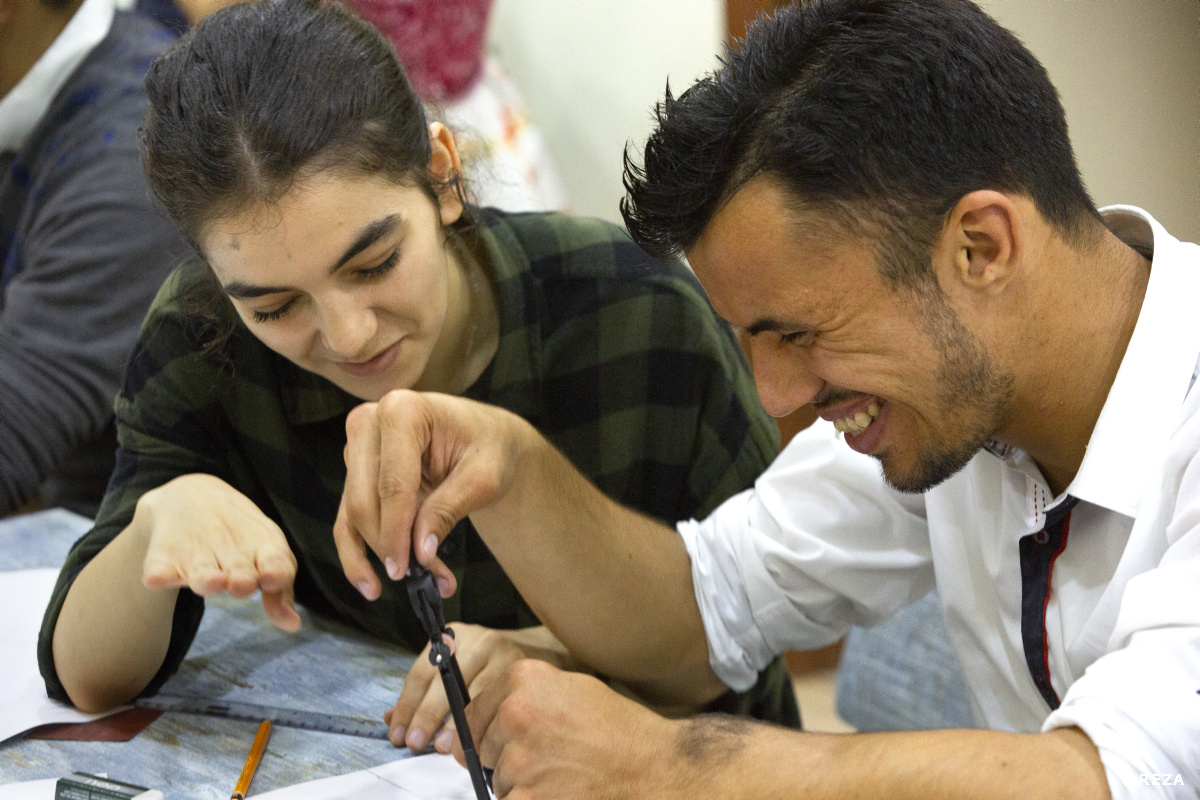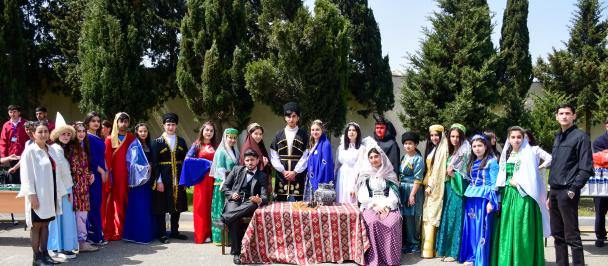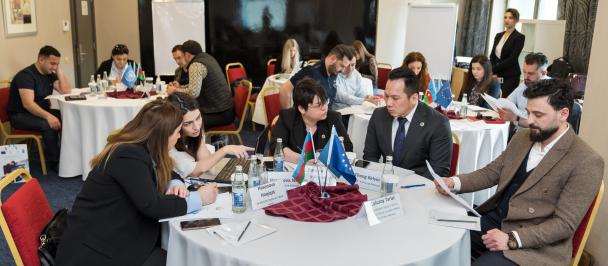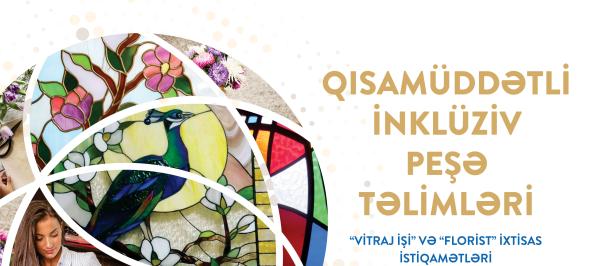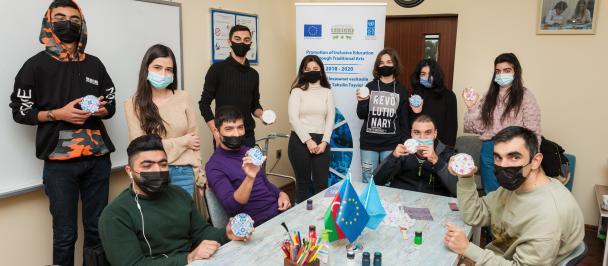Photo: UNDP Azerbaijan/ Reza Deghati
Baku, Icherisheher, 1 November, 2019 – The European Union (EU), the United Nations Development Programme (UNDP) and the Administration of the Icherisheher State Historical-Architectural Reserve under the Cabinet of Ministers of the Republic of Azerbaijan organized a press day today at the Inclusive Vocational Arts and Crafts Training Centre in Baku’s historic Old City. The press day marks the launch of the first inclusive vocational education programme in arts and creative cultural expression as part of a joint project funded by the European Union and implemented by the UNDP together with the Administration of the Icherisheher. Aimed at promoting inclusive education for people with and without disabilities, the project helps young students learn together and experience life through traditional arts.
Signed in 2018 between the EU, the UNDP and the Government of Azerbaijan, the project has recently established a brand new Inclusive Vocational Arts and Crafts Training Centre to foster greater access to inclusive learning platforms for children and youth with disabilities tailored to their specific developmental needs and challenges. The centre operates as an adjacent facility under the Icherisheher Centre for Traditional Art (ICTA). Earlier in September the first cohort of students started their first academic year in the inclusivity workshop of the Training Centre in the Icherisheher.
Welcoming this first group of students at the press day, Head of the EU Delegation to Azerbaijan Ambassador Kestutis Jankauskas said: "Equal treatment, equal opportunity, and non-discrimination provide for inclusive opportunities for women and men with disabilities in mainstream society. Barriers and prejudices are the most disabling for both individuals and society, particularly when these barriers impede access to skill development and decent work. Development and implementation of open, flexible and complementary systems of general, technical and vocational education and training, including continuing employment information is important. Every effort should be made to educate the general public, employers and workers on the need to provide persons with disabilities with guidance and training to enable them to find suitable employment. Skills development is central in enabling people with disabilities to take part in the labour force."
Emphasising the importance of inclusive practices, UNDP Resident Representative Mr. Alessandro Fracassetti said at the press day: “Inclusivity brings a lot of transformative changes into the lives of people with disabilities, helping them boost their self-worth and improve self-esteem and giving them access to a better quality of life. In an inclusive society, people with varying abilities can enjoy the many benefits of a supportive environment, which, among other things, reduces barriers to effective communication, increases participation in community life and improves independent living skills.”
Today, the new Inclusive Vocational Arts and Crafts Training Centre in the Icherisheher is home to 65 enthusiasts, including 25 students with disabilities and 40 typical students enrolled altogether in six classes offered at the Centre. The Centre has currently two running classes on pottery and decorative solutions, each offering a six-month to one-year academic programmes. There are also two additional groups that specialise on woodcrafts, also enrolled in six-month and one-year classes, respectively. A separate class is offered on beads and polymer clay crafts and another one on batik and stained glass crafts. Classes last for two hours once a week in mixed groups consisting of 4-5 students with disabilities and 6-7 students without disabilities.
The classes are taught by professional arts and crafts experts and producers. Teaching assistants who specialise in correctional education are assigned to each group to support instructors during the educational process. Recruited as interns from among the students of the Azerbaijan State Pedagogical University, these teaching assistants provide individual support to students with disabilities when necessary and enhance communication and interaction of students with disabilities with their peers without disabilities. In addition to that, a group of rehabilitation workers, including psychologists, social workers, speech therapists and sign language translators are available at all times to provide psychosocial counseling and other support services to students with different abilities, pursuant to the individual development plans created for each student with disabilities. Most importantly, to help parents of children and youth with varying abilities adjust to a wide variety of emotional and psychological challenges as well as to support them in understanding special needs of their children better, special services providers are available to answer the questions and assist when necessary.
As of September 2019, students have also participated at the interactive training on inclusive education aimed to create an inclusive environment among group members, enhance tolerance and empathy between peers.
****
Media contact:
For media inquiries, please contact Arzu Jafarli, Communications and External Relations Analyst for UNDP in Azerbaijan at arzu.jafarli@undp.org and Gulnara Bayramova, Press and Information Officer at the Delegation of the European Union to Azerbaijan at gulnara.bayramova@eeas.europa.eu

 Locations
Locations